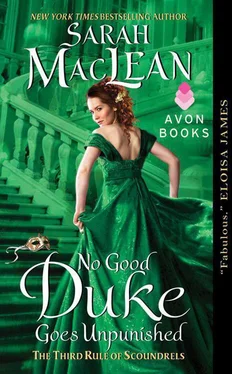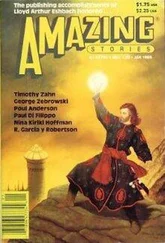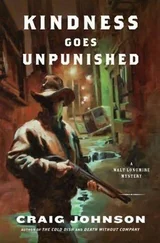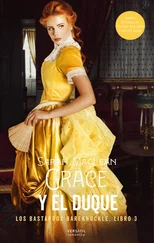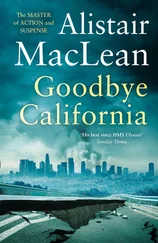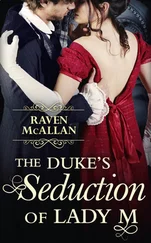She glanced at the clock in the corner of the room. He’d said tonight . As it was still today , she could only assume that he was a blackguard and a cheat. And she intended to tell him such.
Just as soon as her heart ceased its racing.
The air seemed to leave the room as she looked over the sea of little faces around her and realized that she was not ready to tell the world the truth. She was not ready to be Mara Lowe again.
She wanted to remain Mrs. MacIntyre, born nowhere, come from nothing, now governess and caretaker to a motley group of boys. Mrs. MacIntyre had purpose. Mrs. MacIntyre had meaning. Mrs. MacIntyre had life.
Mara had nothing.
Nothing but truth.
She forced her legs to move, to carry her through the collection of boys to meet Alice. To face the man who had returned to the house, no doubt with a plan in place to change both their lives. Once at the door, she turned back to her students.
“If I . . .”
No. She cleared her throat. Tried again.
“ When I return, I expect to hear what happened to Napoleon.”
Their collective groan sounded as she pulled the door shut with a snap.
Alice seemed to know better than to say anything on the walk through the dark, narrow hallways. Mara appreciated the young maid’s intuition—she was not certain that she would be able to carry on a conversation with her heart pounding and thoughts racing.
He was there. Below. Judge and jury and executioner, all in one.
She descended the stairs slowly, knowing that she would never escape her past, and that she could not avoid her future.
The door to the little study where they’d spoken earlier that morning was ajar, and it occurred to Mara that the two-inch gap between door and jamb was a curious thing—eliciting excitement or dread depending upon the situation.
She ignored the fact that somehow, in this moment, it elicited both.
He was not even a little bit exciting; he was entirely dreadful.
She took a deep breath, willing her heart to cease pounding, and released Alice from duty with a halfhearted smile—the most she could manage under the circumstances—before pushing the door open to face the man inside the room.
“You saw him.”
She stepped inside and closed the door firmly. “What are you doing here?”
Her brother came toward her. “What are you doing approaching that man?”
“I asked first,” she said, meeting him at the center of the room in two short strides. “We agreed you’d never come here. You should have sent a note.” It was the way they’d met for the past twelve years. Never in this building, and never anywhere that she might be recognized.
“We also agreed we’d never tell that man that you were alive and living right under his nose.”
“He has a name, Kit.”
“Not one he uses.”
“He has one he uses, as well.” Temple. It wasn’t hard to think of him that way. Big as one, and as unmoving.
Had he always been unmoving? She hadn’t known him when they were young, but his reputation had preceded him—and no one had ever called him cold. A rake, a rogue, a scoundrel, certainly. But never cold. Never angry.
She’d done that to him.
Kit ran a hand through already disheveled brown locks, and Mara recognized the weariness in him. Two years younger, her brother had been filled with life as a child, eager for excitement, and ready with a plan.
And then she’d run, ruining Temple and leaving Kit to pick up the pieces of their unbearably foolish evening. And he’d changed. They’d traded secret letters for years, until she’d resurfaced, hidden in plain sight, Mrs. MacIntyre, widowed proprietress of the MacIntyre Home for Boys.
But he’d been different. Colder. Harsher.
Never speaking of the life she’d left him to. Of the man she’d left him with.
And then he’d gone and lost all her money.
She noted the hunch of his shoulders and the hollows in his cheeks and the scuff on his normally pristine black boots, and she recognized that he at least understood their predicament. Her predicament. She let out a little sigh. “Kit . . .”
“I wish you wouldn’t call me that,” he snapped. “I’m not a boy anymore.”
“I know.” It was all she could think to say.
“You shouldn’t have gone to see him. Do you know what they call him?”
She raised her brows. “They call him that because of me.”
“It doesn’t mean he hasn’t come to deserve it. I don’t want you near him again.”
Too late .
“You don’t want?” she said, suddenly irrevocably irritated. “You haven’t a choice. The man holds all our money and all the cards. And I’ve done what I can to save the home.”
Kit scowled. “It’s always the home. Always the boys.”
Of course it was. They were the important part. They were what she’d done right. They were her good.
But it wasn’t worth fighting Kit. “How did you even know he was here?”
He narrowed his gaze on her. “Do you think I am an idiot? I pay the whore in the street good money to look out for you.”
“To look out for me? Or to keep track of me?”
“She saw the Killer Duke. Sent word to me.”
Anger flared at the idea that her brother would spy on her. “I don’t need protection.”
“Of course you do. You always have.”
She bit back the retort—that she’d faced more demons than he had, for years. Alone. And returned to the matter at hand. “Kit—” She stopped. Reframed. “Christopher, I went to him because we needed it. You . . .” She hesitated, not knowing quite how to say the words. Spreading her hands wide, she tried again. “You lost everything .”
Christopher pushed his fingers through his hair once more, the move violent and unsettling. “You think I don’t know that ? Christ, Mara!” His tone was raised, and she was instantly, keenly aware of where they were—of the name he’d used. She looked to the door, confirming it was closed.
He did not care. “Of course I know it! I lost everything he left me.”
Everything of hers as well. Scraped together and stupidly entrusted to his keeping. But all that was nothing compared to the funds that had been set aside to run the orphanage. Every cent the men had left with their sons.
He’d told her his bank would protect the funds. Grow them, perhaps. But she was a woman and without proof of her marriage or her husband’s death, and so her brother had made the deposits.
Her brother, who couldn’t stop gaming.
Anger flared, even as she wished it wouldn’t. Even as she wished she were sixteen again, able to comfort her younger, gentler, sweeter brother, without hating the man he’d become. Without judging his transgressions.
“You don’t know what it was like to live in his shadow,” he said.
Their father. The man who had unwittingly set them all on this path. Rich as Croesus and never satisfied. He’d always wanted more. Always better. He’d wanted a son smarter and bolder and braver and cleverer.
He’d wanted a duchess for a daughter.
And he’d received neither.
Kit laughed, bitterly. “He’s no doubt watching from his perch in Hell, devastatingly disappointed.”
She shook her head. “He doesn’t own us any longer.”
Her brother’s gaze met hers. “Of course he does. Without him, none of this would have happened. You wouldn’t have run. I wouldn’t have gamed. I wouldn’t have lost.” He raised a long arm, pointed in the direction of the street. “You wouldn’t live among waifs and whores—” He stopped. Took a breath. “Why did you go to him?”
“He holds our debt.”
Kit’s gaze narrowed. “What did he say?”
Читать дальше
